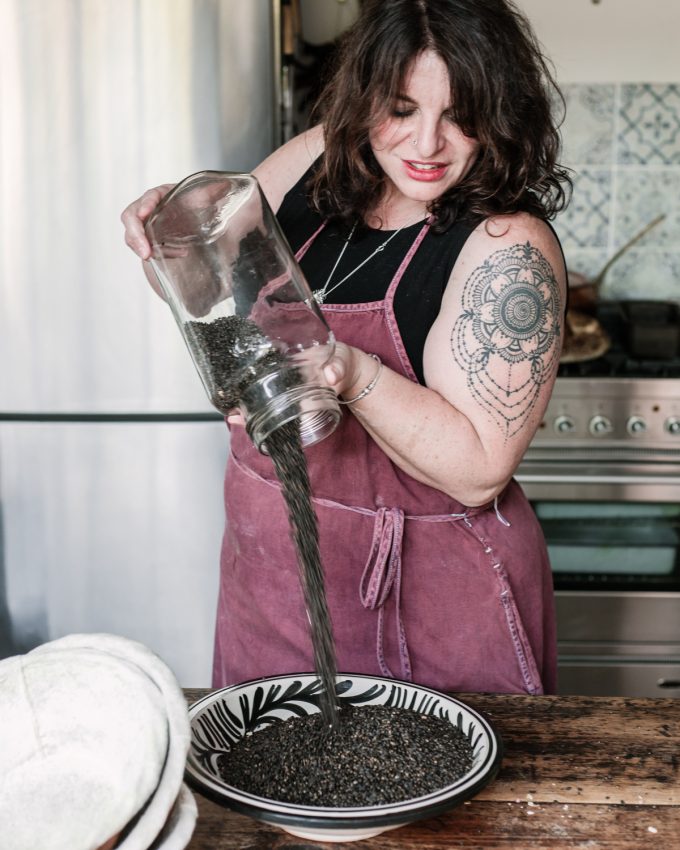 There are numerous reasons why sourdough is considered a healthful bread, but one of the things you will often hear me mentioning antioxidants in grain and in particular polyphenols. You can find them in foods such as chocolate, fruits, vegetables, cereals, tea, coffee and wine. They are also in grain and are more prevalent in darker varieties of grain. But what are they and why are they so important?
There are numerous reasons why sourdough is considered a healthful bread, but one of the things you will often hear me mentioning antioxidants in grain and in particular polyphenols. You can find them in foods such as chocolate, fruits, vegetables, cereals, tea, coffee and wine. They are also in grain and are more prevalent in darker varieties of grain. But what are they and why are they so important?
There are approximately 8000 different phenolic compounds that have been identified so far. Cereals such as whole wheat contain about 20-30 different types of polyphenols with flavonoids and phenolic acids being the most abundant, and they are mainly located in the outer layers (e.g., bran) of cereal grains. Various chemical classes are included in phytochemicals, even though in wheat they mainly consist of phenolic acids, they also include alkylresorcinols, lignans, phytosterols and tocols.
Polyphenols are known for their antioxidant properties providing a range of health benefits from preventing cancer to reducing the risk of cardiovascular disease, however, the extent of its antioxidant capacity and subsequent and health benefits heavily relies on the composition of the gut microbiome. Polyphenols can either have a complex structure or can be simple molecules which when consumed by us humans are readily absorbed into the small intestine. However, the more complex phenolic compounds pass straight through and are broken down in the large intestine/ colon by specific enzymes produced by gut microbes. The breakdown of these complex phenolic compounds results in simple easily absorbable compounds (called metabolites) which are thought to be responsible for the health benefits associated with these class of compounds. The health benefits have been reported to range from protection against gastrointestinal disorders and pathogens, nutrient processing, reduction of serum cholesterol, anti-cancerous and anti-inflammatory properties, anti-diabetic and strengthening the immune system to suggest a few.
Fermenting your bread increases the bioavailability of phenolic compounds
One of the things I find particularly interesting and of significance is that research indicates that long slow fermentation of bread, using lactic acid bacteria and wild yeast facilities more bioavailability of some of these amazing naturally occurring compounds. Studies show, for example, that the bioavailability of ferulic acid is increased by 30-40% during sourdough fermentation. It is the acids produced by the lactic acid bacteria that increase the availability of these compounds, so it stands to reason that the longer and slower you ferment your bread and the more of the outer layers included in your flour ( i.e. wholegrain ) then the more potentially healthful your bread is.
Polyphenols alter the composition of the gut microbiome
The increased bioavailability is one aspect making wholemeal bread nutritious, but there is more .. again studies show that beneficial effects this may well be beneficial to the gut microbiome. Polyphenols are considered to possess beneficial prebiotic properties that not only serve as a source of food but also helps to stimulate and improve microbial diversity of the gut microbiome, which is associated with more robust health. One such study showed that polyphenols help alter the composition of the gut microbiome by stimulating and increasing the diversity of specific species that have also known to have direct health implications. an in-vitro study showed that phenolic compounds such as ferulic acid (mentioned above as one of the main phenolic compounds in wheat) was shown to have beneficial effects on the growth of a specific species of beneficial gut microbes lactobacillus

